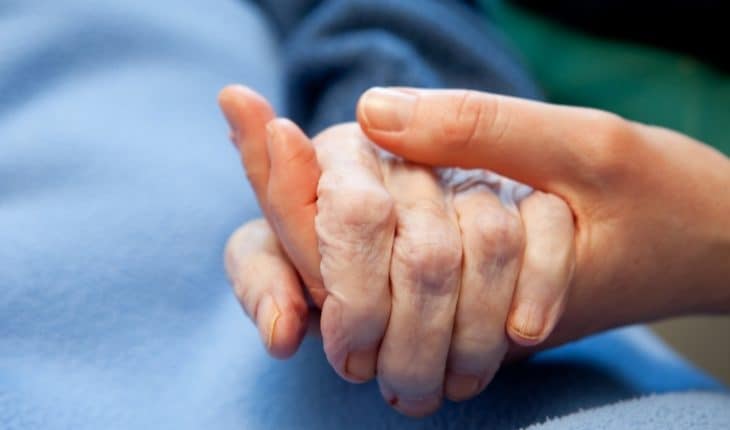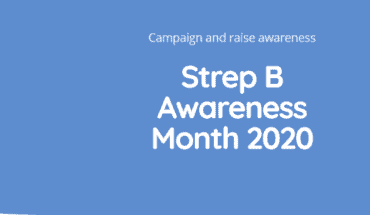The Novel Coronavirus (covid 19) is a highly virulent virus, originally identified in Wuhan in the Hubei province of China in January 2020. The virus is highly contagious and has been swift to spread across much of the World. Most people go on to make a full recovery. However, for a minority of people it is more serious and for approximately 1% of those affected, it has resulted in deaths from pneumonia. These deaths have predominantly occurred in older people and those with pre-existing medical conditions.
Coronavirus symptoms:
The key symptoms of Coronavirus are:
- A new, persistent cough
- A high temperature above 37.8
- Achy limbs
- Extreme fatigue
You no longer needed to be tested if you think you have the virus, only those requiring hospital treatment will be tested.
A cough and a fever are the main symptoms, you may experience both of these or just one, in any case you should self-isolate for 14 days.
People with the above symptoms should only phone 111 if you become substantially worse, need medical help for another health condition or if they develop further symptoms after 5 days.
Sick patients will need to rest, drink lots of fluids and take pain killers or flu remedies if necessary.
They may need your help with this. Help them to drink lots of hydrating fluids and avoid caffeine and alcohol as this can dehydrate them. They should have plenty of rest and will have a fever and most people will feel better within 5 to 7 days.
Use the 111 online service for further guidance.
Please Note: the NHS and the Government are updating their guidelines as the situation evolves. We recommend you check the NHS and Government websites daily to ensure you are acting on the most recent information.
Use the NHS 111 online service for further guidance. Only phone the NHS111 number if the person you are taking care of becomes substantially worse, needs medical help for another health condition or if they develop further symptoms after 5 days.
If someone is isolated to prevent the spread of infection, then they are likely to need help. When you are caring for someone who might have Coronavirus, it is important to take appropriate precautions to avoid being infected yourself.
First Rule: Protect yourself from infection
Ideally maintain a 3-feet exclusion zone (2 meters) around anyone with symptoms. It is thought that the virus can travel about 3 feet when projected by a cough or sneeze. The virus spread via small droplets from the nose or mouth which are released when a person with COVID-19 coughs or exhales. You can also catch the virus if someone coughs or sneezes on a surface and you then touch that surface, and then your mouth, nose or eyes .
The virus can survive on a cold, hard surface for up to 72 hours. It is thought to survive for a shorter period of time on soft furnishings and only about 15 minutes on a tissue.
If possible, no one should sleep in the same room with an infected person. You should also try to spend as little time as possible in the same room with them.
Second Rule: Open Windows
Open windows to allow the air to circulate. However, ensure the patient is not in a draft.
Third Rule: Hygiene
However, careful you are, droplets carrying the virus are likely land on objects and surfaces and can infect you as the carer.
As the Coronavirus is thought to survive 72 hours on cold hard surfaces, it is vital to clean all surfaces thoroughly and regularly.
To prevent yourself being infected it is vital to adhere to the following:
- Wash your hands frequently with warm water and soap for at least 20 seconds. Especially after caring for the patient and before eating.
- Try not to touch your face, particularly your mouth, eyes and nose.
- If possible encourage the patient to wear a mask and wear one yourself when you are in the same room with them.
Fourth Rule: Clean, Change, Keep Separate
Clean and disinfect frequently touched objects and surfaces (doors handles, telephones, sinks handles…)
Regularly wash underwear, towels and household linen that the patient uses at a temperature of 40C or more. Take care not to to hug dirty laundry to your chest and face when you are carrying it. Instead reduce the chances of infection by using a laundry basket.
Keep everyone’s toothbrushes and other personal items such as flannels and towels separate.
If a sick person lies on the sofa to watch the TV, remember the virus can survive there too. Wash any throws.
Never share cutlery, crockery, glasses, mugs or napkins. Use very hot water and washing up liquid, or ideally use a dishwasher on a thorough cycle.
Fifth Rule: Isolation
It is crucial that people with Coronavirus stay at home. Remember that a person with Coronavirus symptoms MUST NOT GO to the GP, pharmacy or hospital.
Therefore it will be up to you, caring for them to buy them anything they need. Avoid having visitors, do not invite anyone to the house and ensure postmen and delivery companies leave deliveries outside the door. It is particularly important that the patient doesn’t have any contact with vulnerable individuals, like the elderly or those who are immuno-compromised or have underlying health conditions. These people are the ones for which the virus is most dangerous. Therefore, they need to be protected more than anyone.
If the patient lives with an old person or someone with health problems, they should remain at a safe distance.
Ideally, the patient should stay just in one private room, avoiding common areas like the kitchen and the living room. If possible, prepare meals for them and leave them outside the door to take in themselves once you are out of the way.
Sixth Rule: Help Them to Recover
People with Coronavirus should stay well hydrated, rest and may find painkillers, such as paracetamol are helpful. The French Government have advised against taking ibuprofen.
Plenty of sleep and rest is strongly encouraged.
To care for the casualty’s fever, they should be encouraged to drink fluids, wear light cotton clothing and avoid covering up with multiple covers or clothes. It is not a good idea to sweat out a fever.
Currently there is no medicine that can prevent or cure the disease. Hydration, painkillers and rest can only help to alleviate the symptoms.
It is important that you help the patient to drink regular fluids, rest and take paracetamol.
Seventh Rule: Don’t Panic!
Coronavirus is a serious issue that is causing unprecedented problems in many countries. However, you must bear in mind that for the vast majority, Coronavirus COVID-19 is mild and people recover from it within 5-7 days.
Follow the guidance provided by the Government and public health and wash your hands!
This is a scary time and you can honestly help the patient best, by retaining an upbeat, positive and reassuring presence around them.
- What is a seizure? - 13th March 2025
- Febrile Convulsions and Seizures in Children - 13th March 2025
- Why women are less likely to receive CPR or survive cardiac arrest - 6th March 2025







